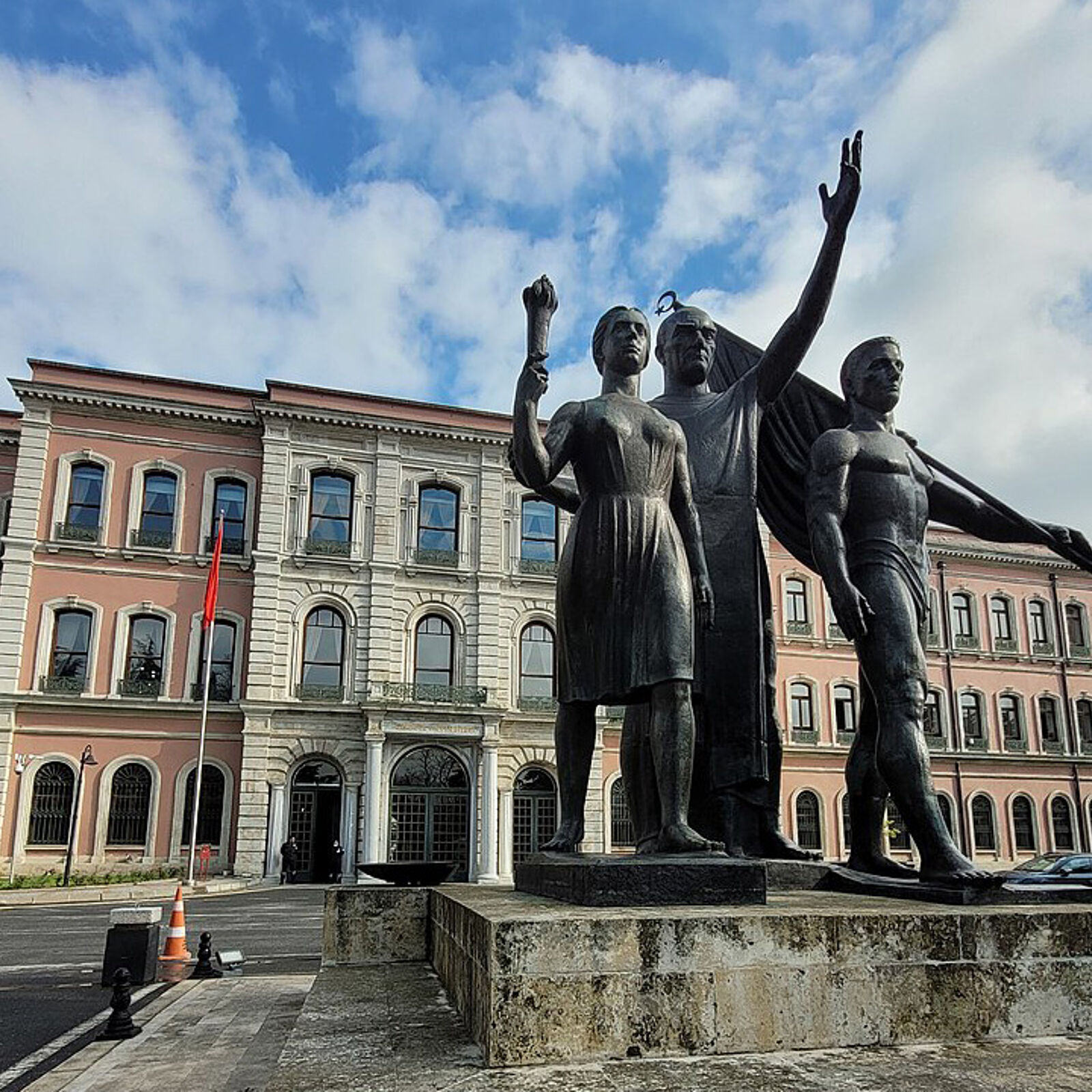Following the founding of the Turkish Republic in October 1923, a key focus of the modernization agenda was the existing university system, originally modelled on the grandes écoles of France, merged into Darülfünun-u Şahane in 1900. At first, a gradual revision was considered, based on the proposals of the Swiss scholar Prof. Albert Malche. In 1933, however, a more radical approach was adopted; the Darülfünun was closed, numerous scholars were dismissed, and Istanbul University was established in its place. From the very beginning, the seeds of an enduring conflict between universities and Turkish governments were sown. Since then, the history of universities in modern Türkiye has been marked by political upheavals and coups, resulting in significant interventions and widespread dismissals, notably in 1947, 1960, 1971, 1983, and most recently in 2016.
1971: Under the watchful eye of the state
University autonomy and academic freedoms were first guaranteed by the Constitution in 1961. According to Art. 120, universities were public legal entities with scientific and administrative autonomy. They were governed and supervised by their governing bodies, which were composed of and elected by members of the faculty. Governing bodies of the University, faculty members, and research associates could not be dismissed by authorities outside the university. University faculty members and research associates were granted the right to conduct research freely and to publish the results. However, this impeccably drafted provision lasted only ten years. After an amendment in 1971, the same article stated that universities would continue to be governed by elected bodies, but under the supervision and control of the state. University bodies, faculty members, and research associates could now be removed from their posts by authorities outside the university if the «freedom of learning and teaching in universities is endangered». In such circumstances, the Council of Ministers was even given the constitutional right to seize the administration of the university.
1982: Academic freedom for patriots only
With the 1980 coup d’état and the promulgation of the new Constitution of 1982, the limits of university autonomy and academic freedoms were even further tightened. To this day, Art. 130 IV states that university members are free to engage in all forms of research and publication. However, this freedom is limited by the very opaque statement that such research cannot include activities against the existence and independence of the state and the integrity and indivisibility of nation and country. Universities remain under the supervision and control of the state (Art. 130 V). This control was facilitated by the establishment of the Council of Higher Education (CoHE, Art. 131 of the 1982 Constitution), which checks and approves university budgets, determines the number of academics per faculty and public university, decides on the number of enrolments for each university, unifies curricula, appoints deans, dismisses faculty members, and more. Today, the CoHE consists of 21 members, 14 of whom are directly appointed by the President of the Republic and seven others are nominated by the Interuniversity Council but are again appointed by the President.
2018: At the discretion of the President
The right to appoint rectors was already granted to the President by the 1982 Constitution (Art. 130 VI). However, until 2016, universities had at least the right to hold elections and to nominate candidates to the CoHE according to the election results. The CoHE would propose three of these candidates to the President, who would make the final decision. Even this bit of autonomy was removed in 2016 by a state of emergency decree that gave the President the right to appoint rectors, a provision that was also included in the Law on Higher Education in 2018.1 As of 2018, the President, instead of the Council of Ministers on the proposal of the CoHE and the Ministry of National Education, was authorised to establish faculties, institutes, and colleges affiliated to universities and to merge, close, affiliate and rename them.2 As Türkiye transitioned from a parliamentary democracy to a presidential system of government in 2018, many decisions that were once taken in a collaborative process are now exclusively at the discretion of the President.
2023: In bad company
The balance sheet of 100 years of higher education in the Turkish Republic is sobering. According to the Academic Freedom Index,3 in 2023 Türkiye remains to be in the lowest category, together with countries such as China, North Korea, Egypt, Iran, Rwanda, and Syria. In 1923, Türkiye received an average score of 0.07 out of 1. In 2022, this average was only 0.01 higher. After the 1980 military coup, the average was at 0.05. Given that Türkiye had managed to rise to 0.56 out of 1 in 2004 – the highest score in 100 years – this decline in just 19 years is even more dramatic.4 Unsurprisingly, it goes hand in hand with Türkiye’s falling scores in the Liberal Democracy Index.5 Whereas in 2012 it was still classified as an electoral democracy with a score of 0.36 out of 1, in 2022 Türkiye is listed among the electoral autocracies with a score of 0.15.
The management of all universities in a chain of command, on the one hand, and the opening of a university in every province without providing any infrastructure and without training adequate faculty,6 on the other, seem to have disastrous consequences: Only three Turkish universities are ranked among the world’s top 500, and another eight are among the top 1000;7 the number of publications in predatory journals has increased significantly;8 the number of unemployed university graduates is 2.5 times higher than in the EU;9 the brain drain at the level of experienced academics as well as among the most successful recent university graduates is rampant10– in short, Türkiye’s contribution to world science melts away.
What happens in Türkiye does not stay in Türkiye
Unfortunately, the developments in Türkiye reflect a general trend of ‘autocratisation’ worldwide – a hallmark of such democratic backsliding is, among other things, the loss of university autonomy and the restriction of academic freedoms. Yet, as is increasingly recognised, free universities are an integral part of any functioning democracy.11 More than ever, these institutions are needed to test, question, refute or confirm, and to improve the pronouncements of those in power. On the other hand, universities are the institutions we need the most to find solutions to the major threats facing humanity. The typical response of authoritarian regimes, which is to suppress independent science and scholarship, is not only detrimental to those specific countries, but also to humanity as a whole.
References
[1| Cf. on the qualifications of the appointed rectors e.g. Karadag, Engin (2021): Academic (dis)qualifications of Turkish rectors: their career paths, H-index, and the number of articles and citations, in: Higher Education, 81, p. 301-323. https://doi.org/10.1007/s10734-020-00542-1
[2] Law on the Organization of Higher Education Institutions, supplem. Art. 30.
[3] https://academic-freedom-index.net
[4] cf. also Pruvot Bennetot Enora, Estermann, Thomas and Popkhadze, Nino (2023): University Autonomy in Europe IV. The Scorecard 2023, European University Association, https://eua.eu/downloads/publications/eua%20autonomy%20scorecard.pdf.
[5] Papada, Evie, Altman, David et al. (2023): Defiance in the face of autocratization. Democracy report 2023. University of Gothenburg: Varieties of Democracy Institute, https://www.v-dem.net/documents/29/V-dem_democracyreport2023_lowres.pdf
[6] While in the period 1923-2006, the number of universities which opened in Türkiye was 75 (52 public universities and 23 foundation universities), between 2006 and 2008 41 public universities were established in 41 provinces in just three years. From 2006 to the end of 2023, a total of 125 universities were established. Of these, 74 are public and 51 are foundation universities.
[8] Cf. eg Selcut, Besir Demir (2018): Predatory Journals: Who publishes in them and why?, in: Journal of Informetrics 12,4, p. 1296-1311. https://doi.org/10.1016/j.joi.2018.10.008
[9] Bilim Akademisi – Science Academy Türkiye, 2021-2022 Science Academy Report on Academic Freedoms, p. 7, https://en.bilimakademisi.org/wp-content/uploads/2023/02/21-22-academic-freedoms-report-final-1.pdf
[10] ibid., p. 3.
[11] Cf. Recent examples include: Maassen, Peter, Martinsen, Dennis et al. (2023): State of play of academic freedom in the EU Member States (Study commissioned by the Panel for the Future of Science and Technology STOA), https://www.europarl.europa.eu/RegData/etudes/STUD/2023/740231/EPRS_STU(2023)740231_EN.pdf. and the European Parliament Forum for Academic Freedom.

About the author
Yeşim M. Atamer is full professor of Private Law, Commercial Law, European and Comparative Law at University of Zurich. Her main areas of research are law of obligations, especially comparative contract law, law of domestic and international sale of goods, comparative consumer law, and regulation in contract law. She is a Member of the Executive Board of the Science Academy Türkiye.
About Bilim Akademisi – Science Academy Türkiye
Bilim Akademisi - Science Academy Türkiye was founded when the Turkish Academy of Sciences (Türkiye Bilimler Akademisi, TÜBA) lost its autonomous status following executive decrees on August 27, 2011, and November 3, 2011, which stipulated the appointment of two thirds of the TÜBA members by government agencies. A considerable number of the standard, honorary, and associate members of TÜBA chose to resign, citing the loss of TÜBA's status as an independent academy of science. In response, seventeen of these former TÜBA members established the Bilim Akademisi - Science Academy Türkiye on November 25, 2011. This new academy was subsequently joined by the majority of the other members who had resigned from TÜBA (cf. Wikipedia). Since 2015, the Science Academy publishes yearly reports on the state of academic freedoms in Türkiye. Please click here to access the full list of reports.
Open Access
Dies ist eine Open-Access-Publikation, lizenziert unter CreativeCommons CC BY-SA 4.0.
Disclaimer
Die Blogbeiträge können Meinungsäusserungen der AutorInnen enthalten und stellen nicht grundsätzlich die Position der jeweiligen Arbeitgeberin oder der SAGW dar.

